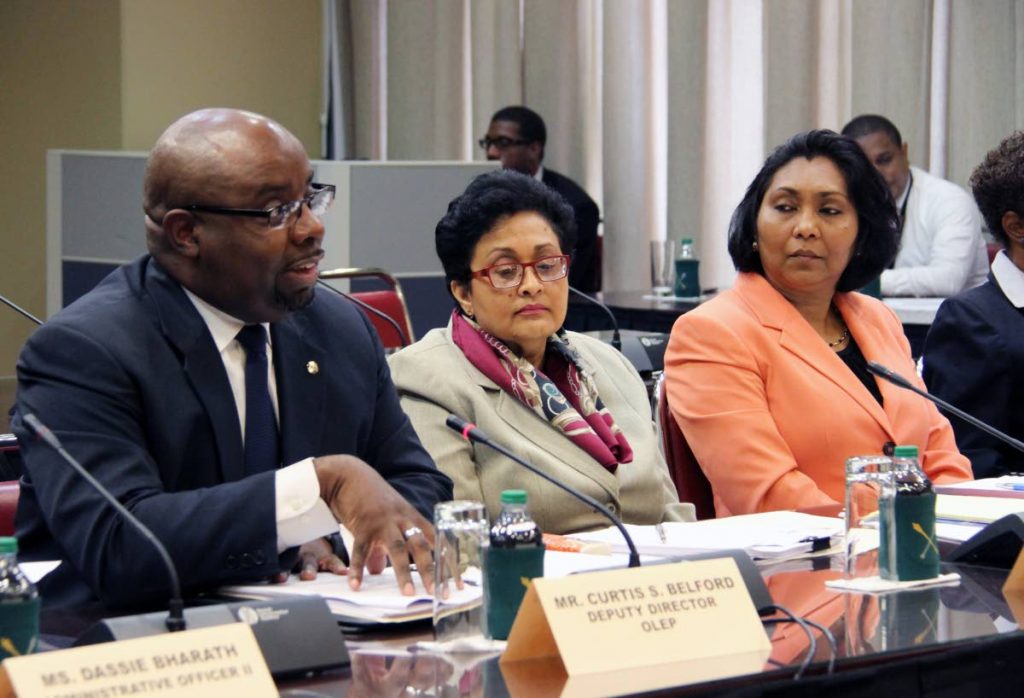INVASION

The Venezuelan invasion is well and truly on.
Driven by hunger, hopelessness and a search for a better life, Venezuelans are leaving their homeland and flocking to this country, some seeking asylum but most arriving here illegally.
A Joint Select Committee (JSC) of Parliament, convened yesterday to discuss Human Rights, Equality and Diversity, heard that a large percentage of those kept at the Immigration Detention Centre (IDC) in Arima, are Venezuelans. That South American nation is gripped with social and political unrest coupled by economic collapse.
The JSC panel was told by Acting Chief Immigration Office Charmaine Gandhi-Andrews that on a weekly basis, between 150 and 200 Venezuelans arrive in Cedros by pirogue...most with no legal documents. And these are the Venezuelans the authorities know about. How many countless others arriving in the country by other means, no one quite knows.
She reported that 90 per cent of the Venezuelans currently detained at the Immigration Detention Centre (IDC) in Aripo had entered the country illegally or had criminal convictions such as possession of drugs for the purpose of trafficking or arms and ammunitions. She also reported at the IDC there were currently 37 males and 30 females from Venezuela, which was more than half of the 120 people detained.
JSC member Esmond Forde asked about the trend of Venezuelans at the IDC and there appeared to be a change from detainees from Africa or the Caribbean. He reported that for Venezuelan detainees: in 2015 there were 29 males and no females; in 2016 there were 125 males and 97 females; and in 2017 there were 145 males and 82 females.
“So we are seeing where the numbers are increasing as a result of what was happening with our next door neighbours.” He asked what proactive systems are being put in place to address this issue. Gandhi-Andrews responded the issue was complex with more people entering illegally. She said the numbers of Venezuelans entering this country from legal ports of entry had reduced from 60,000 between 2014 and 2015 to about 28,000 last year.
Gandhi-Andrews pointed out they do not have the numbers for Venezuelans entering the country illegally but she surmised that with the numbers being picked up for entering illegally she could safely say that larger numbers are arriving illegally and more were being detained.
She also reported that the numbers of Venezuelans that had applied for asylum has increased from five in 2016 to today about 2,000 and daily it is rising. She said most of the Venezuelans entering illegally did not have travel documents and the assistance from Venezuelan authorities was not functioning as before and the officials were only available on certain days.
Gandhi-Andrews reported some Venezuelans had been repatriated by boat but there was only so many people who could go on a vessel. She said there was a plan for the Coast Guard to assist in repatriating Venezuelans but this has not materialised. She also reported that some of the Venezuelans preferred a flight so they could be placed closer to their homes.
JSC member Glenda Jennings-Smith asked why the Venezuelans could not be dropped at a port of entry but Gandhi-Andrews said some have no money and immigration officials would try to contact their families to pick them up or send money.
“I agree we could just take them and drop them anywhere in Venezuela and let them make their way from whatever point we drop them off at. But I think it would be irresponsible of us...to try to do something like that and just leave them wherever it is.” She added: “We would not put them outside to the wolves. We would try to contact someone.”

Comments
"INVASION"